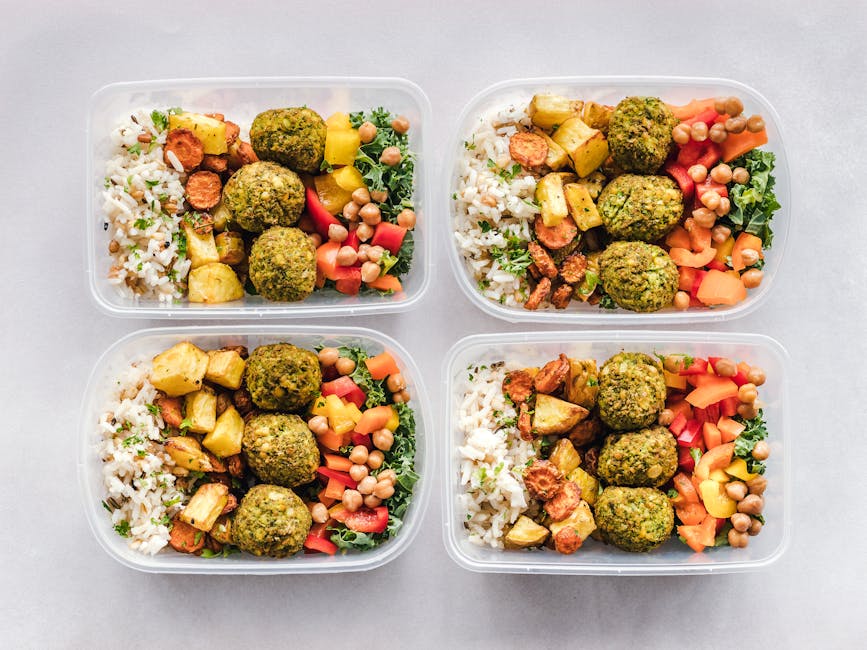
“`html
Delicious Vegan Dinner Ideas for Family Meals
Introduction
In a world increasingly aware of health, sustainability, and ethical eating, veganism has gained significant momentum. Families are exploring plant-based meals not only to enhance their health but also to contribute to environmental conservation. According to the National Institutes of Health, a balanced vegan diet can lower the risk of chronic diseases and promote better overall health. However, many families face challenges when transitioning to a vegan lifestyle, such as meal planning, ensuring adequate nutrition, and keeping everyone satisfied.
Understanding the Concept
Veganism is more than just a diet; it’s a lifestyle choice that avoids all animal products, including meat, dairy, and eggs. The American Vegan Society emphasizes that vegan diets are rich in nutrients, providing essential vitamins and minerals while being lower in calories and saturated fats than meat-based diets. Statistics show that about 3% of the U.S. population identifies as vegan, a number that has grown significantly in recent years. This shift reflects a growing awareness of health issues, ethical considerations regarding animal welfare, and concerns about the environmental impact of animal agriculture.
Real-World Examples
Consider the Smith family, who decided to transition to a vegan diet for health reasons. Initially, they struggled with meal planning and often resorted to repetitive meals. However, after joining a local vegan cooking class, they discovered a plethora of recipes that not only catered to their health needs but also kept their three children excited about dinner time. They now enjoy a vibrant variety of dishes, such as lentil shepherd’s pie and quinoa-stuffed bell peppers.
Another example is the Johnsons, who turned to veganism after their youngest child was diagnosed with a dairy allergy. They found themselves overwhelmed by the number of changes they had to make. With the help of online resources and community support, they introduced their children to plant-based cooking. They now share meals like chickpea salad sandwiches and vegetable curry, fostering a sense of togetherness and adventure in their dining experience.
Benefits and Challenges
Transitioning to a vegan diet comes with its own set of advantages and challenges. Here’s a breakdown:
- Benefits:
- Improved Health: A vegan diet can reduce the risk of heart disease, diabetes, and certain cancers.
- Environmental Impact: Plant-based diets have a lower carbon footprint compared to meat-heavy diets, contributing to the fight against climate change.
- Ethical Considerations: Veganism promotes animal welfare, aligning with the beliefs of many families.
- Diverse Meals: A vegan diet encourages creativity in meal preparation, often leading families to try new foods and recipes.
- Challenges:
- Nutritional Concerns: Families must ensure they get adequate protein, iron, calcium, and vitamin B12, which are commonly found in animal products.
- Meal Planning: Finding diverse, appealing, and quick recipes can be challenging, especially for busy families.
- Social Situations: Navigating dinners at friends’ homes or restaurants can be complicated when trying to maintain a vegan lifestyle.
- Potential for Processed Foods: Some families might fall into the trap of relying on processed vegan foods, which can be unhealthy.
Expert Opinions & References
Nutritionists and experts often emphasize the importance of a well-rounded vegan diet. According to the Academy of Nutrition and Dietetics, a well-planned vegan diet is suitable for all stages of life, including pregnancy, childhood, and adolescence. Additionally, a study published in Nutrients Journal found that vegans typically have lower body mass indexes and lower cholesterol levels compared to non-vegans. These findings underscore the health benefits of incorporating plant-based meals into family diets.
FAQs
1. What are some easy vegan dinner ideas for families?
Simple vegan dinner ideas include:
- Vegetable stir-fry with tofu and brown rice
- Chickpea curry served with quinoa
- Lentil tacos with guacamole and salsa
- Stuffed bell peppers with a mix of beans, rice, and vegetables
2. How can I ensure my family gets enough protein on a vegan diet?
To ensure adequate protein intake, incorporate a variety of plant-based protein sources such as legumes (beans, lentils, chickpeas), nuts, seeds, tofu, tempeh, and whole grains (quinoa, brown rice, oats). Combining different protein sources throughout the day can also help meet your family’s protein needs.
3. Are there any nutritional concerns with a vegan diet?
While a vegan diet can be healthy, it’s important to monitor certain nutrients that may be low in plant-based diets, such as vitamin B12, iron, calcium, and omega-3 fatty acids. Consider fortifying your diet with supplements or consuming fortified foods as needed. Consulting with a healthcare provider or registered dietitian can help in creating a balanced meal plan.
4. How can I get my kids to eat vegan meals?
To encourage children to enjoy vegan meals, involve them in the cooking process, experiment with fun and colorful dishes, and introduce new foods gradually. Make meals visually appealing and flavorful, and consider creating themed dinner nights to keep things exciting.
Final Thoughts
Transitioning to a vegan lifestyle can be a rewarding journey for families. By exploring diverse recipes, staying informed about nutritional needs, and fostering a supportive environment, families can embark on this adventure together. Whether you’re new to veganism or simply looking for new family meal ideas, the world of plant-based cooking offers endless possibilities that can nourish both the body and the soul.
“`
https://images.pexels.com/photos/1640771/pexels-photo-1640771.jpeg?auto=compress&cs=tinysrgb&h=650&w=940